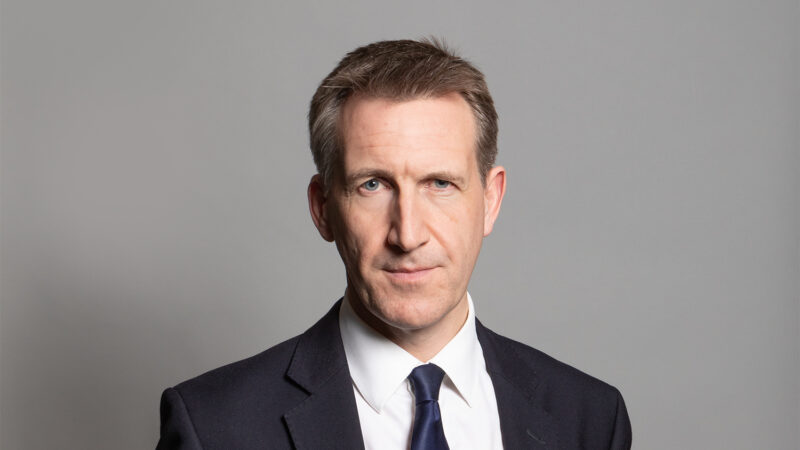
Have you received any ‘Happy St. George’s Day’ messages yet? Are you doing anything to mark the occasion? Did you even know it was today? If your answers are no to all three… don’t worry, you’re not alone. Of course, if our Celtic neighbours were asked the same on their respective patron saint days, the response would likely be different.
It’s a curious phenomenon, one that I believe is born out of a fear of English nationalism. That inhibition isn’t exclusively felt on the left, but it’s certainly more acute. Anyone who’s been door-knocking in the so- called ‘Red Wall’ will know patriotism is a sore point for our party.
The question of how we tackle our problem with patriotism has rightly generated widespread debate and many column inches. I say rightly because it is an ideal from which some in Labour have long sought to distance themselves – and if we do not assert ourselves, the result will be to further open the door to xenophobia and isolationism.
Like it or not, if Labour is going to win back what we lost and form a government again, we will have to prove we are the party that will stand up for Britain. That does not mean we have sound like an insipid version of the Tories or be dragged into a culture war. Instead, we need to better understand how patriotism relates to people’s lived experiences and, crucially, to develop our own narrative.
George Orwell once famously wrote that in “left-wing circles it is always felt that there is something slightly disgraceful in being an Englishman and that it is a duty to snigger at every English institution”. We are now 80 years on from The Lion and the Unicorn and for some, very little has changed. But why are elements of the left – particularly in England – so reticent about the notion of patriotism?
Fundamentally, a love of your country is about shared purpose and connection – ideals the left should champion. An inconsistency I fail to understand is that local and regional pride is accepted, celebrated, even encouraged, but when the discussion moves to national pride, many in our party begin to feel uneasy. This reaction is not shared in Barnsley, nor in towns across the post-industrial North and Midlands. And with good reason.
I do not believe that patriotism is a reactionary principle, nor do I accept there is anything antithetical about socialism and patriotism. The problem is that if we have nothing to say on what it means to be a patriot, the discourse becomes governed by, at best, jingoistic caricatures and, at worst, violent nationalism.
Part of the issue is the left’s reluctance to embrace our history. Too many see only the bad: the Britain of empire and conquest. But what about the Britain of the Tolpuddle Martyrs, the Chartists and the miners’ strike? These were all working-class movements founded on the belief that their lives, communities and country would be advanced through unity and co-operation.
And what about the Britain of the second world war generation? Surely it represented the textbook definition of what it is to be a patriot. They fought and defeated fascism, then elected the most radical government in our history.
On a personal level, I find it galling that the right in our country enjoys a near monopoly on patriotism. It is a source of deep frustration that by brandishing Union Jack emojis they can lay claim to be ‘on Britain’s side’ while simultaneously paying our key workers a pittance, dismantling our public services and selling off our critical national infrastructure.
Of course, we need to be acutely aware of the dark side of patriotism. At both home and abroad, the far right is on the rise. There can be no complacency and any move to legitimise them must be resisted. I want patriotism to spur us to confront our deepest problems and injustices, not to divert attention from them. We seek to represent working-class communities, not pit them against each other. That means patriotism can never be at the expense of minority communities. As the Black Lives Matter movement highlights, we have a long way to go to achieve racial equality in Britain.
Developing our narrative will take time. It will not be easy, and there is no blueprint for success. We have no Cool Britannia wave to ride this time around and occasional flag-waving in a post-Brexit landscape will be rightly dismissed as too little, too late. Our patriotism must be one that incorporates everyone, still centred on working toward a national project but – in contrast to the right – based on the principles of fairness and decency.
The simplest way I can describe my beliefs is this: I love my country and its people, but I know we can be so much better. I’m extremely proud of being English and of our traditions, but I don’t believe our political and economic settlement is delivering for the working-class. Much of the so-called ‘Red Wall’ feels the same and nobody in the labour movement should feel ashamed to agree.




More from LabourList
Starmer or Sarwar: Scottish Labour MSPs and MPs split over Keir Starmer’s future
‘Every Lidl helps: What can the Government do to bring down food prices?’
Delivering in Government: your weekly round up of good news Labour stories